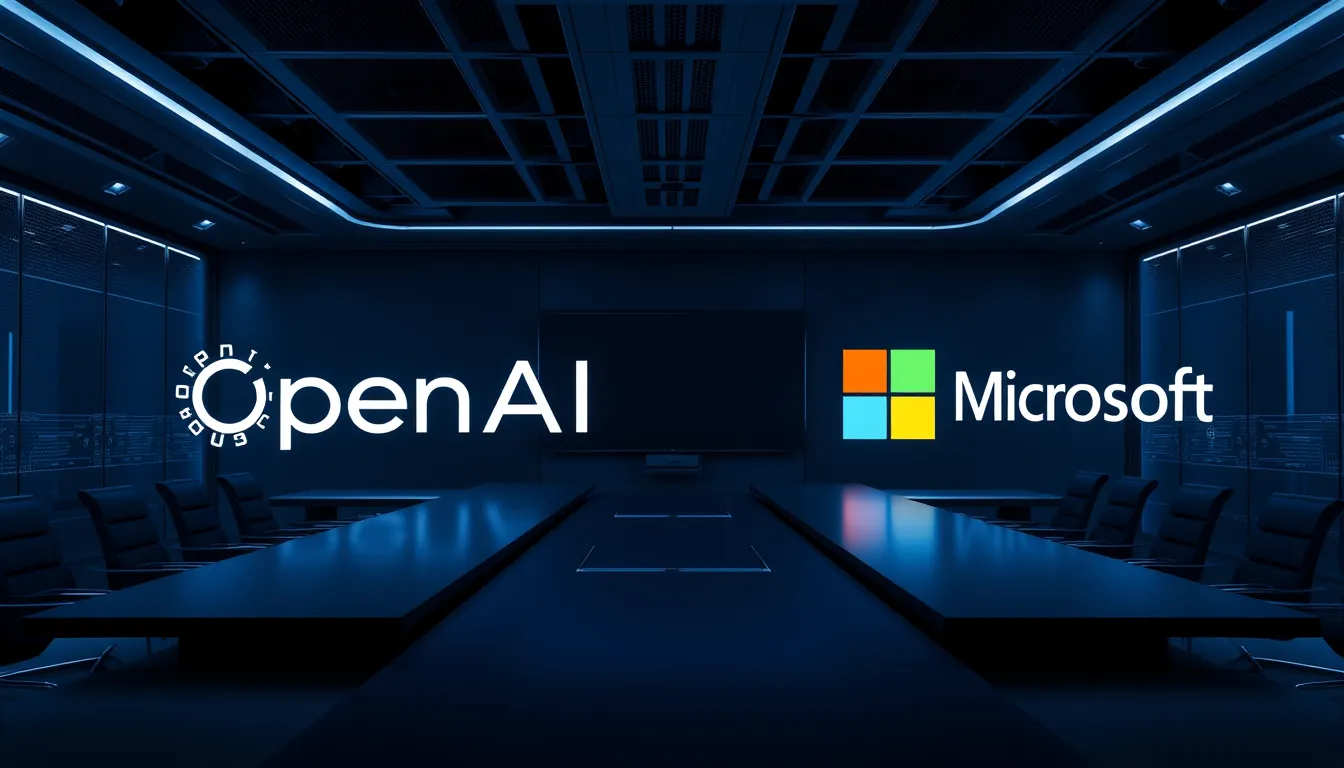Now Reading: OpenAI For-Profit Shift: Microsoft Partnership Insights
-
01
OpenAI For-Profit Shift: Microsoft Partnership Insights
OpenAI For-Profit Shift: Microsoft Partnership Insights

OpenAI For-Profit Shift: Microsoft Partnership Insights
In a bold strategic move, OpenAI has transitioned to a for-profit model, a historic pivot that is reshaping the landscape of artificial intelligence. This transformation is not merely a rebranding; it represents a fundamental change in the way the company approaches AI innovation, investment, and ethical considerations. At the heart of this pivot is the focus on generating sustainable growth while continuing to pursue breakthrough advancements in AI technology.
The Strategic Shift to OpenAI For-Profit
The decision to embrace a for-profit strategy has stirred significant discussions across the tech industry. Under this new model, OpenAI for-profit aims to tap into robust investment channels and accelerate technological development. Key aspects of this transformation include:
- Enhanced access to capital for groundbreaking research.
- Greater emphasis on scalable business models.
- Increased capacity for investing in next-generation AI technologies.
This shift is expected to streamline operations and ensure that innovative projects receive the funding and resources necessary to transform the future of AI.
Microsoft Partnership: A Powerful Collaboration
Alongside its corporate restructuring, OpenAI has formed a groundbreaking partnership with Microsoft. This collaboration represents a symbiotic relationship where both entities benefit from shared expertise and resources. Microsoft, renowned for its cloud computing capabilities and global technology footprint (visit Microsoft for more details), has committed substantial support to enhance OpenAI’s research efforts.
Key elements of the Microsoft partnership include:
- Technical Integration – Microsoft will integrate OpenAI’s state-of-the-art technologies into its expansive suite of products, ensuring that AI innovations are accessible on a global scale.
- Financial Investment – This alliance is designed to provide strategic financial backing, essential for further accelerating AI research and development.
- Strategic Collaboration – The partnership is set to leverage Microsoft’s technical infrastructure, paving the way for innovations that could shape the future of applications ranging from automated systems to advanced neural networks.
Impact of Microsoft Deal on AI Research
One of the most compelling aspects of this collaboration is its potential impact on AI research. The infusion of investment and technological support is expected to drive advancements in critical areas, including:
- Deep learning optimization and neural network advancements.
- Enhanced machine learning algorithms that lead to more precise data analytics.
- Integrated platforms that combine the strengths of cloud computing with innovative AI solutions.
This synergy promises to accelerate the pace of innovation. The long-tail keyword “impact of Microsoft deal on AI research” is highly relevant as industry analysts forecast that such partnerships can lead to transformative breakthroughs in areas like ethical AI development and AGI (Artificial General Intelligence).
Balancing Innovation with Ethical AI Development
The transition to a for-profit model brings along complex ethical considerations. As OpenAI for-profit pushes the envelope on rapid innovation, it also reinforces its commitment to ethical AI practices. Stakeholders and industry experts are keenly observing how the company navigates potential pitfalls, ensuring that progress does not come at the expense of ethical oversight. Fundamental aspects include:
- Ethical AI Protocols – OpenAI is committed to integrating strict ethical standards into every facet of its research.
- Transparency and Accountability – A clear focus on maintaining transparency in operations and decision-making processes.
- Collaborative Oversight – Working with academic and regulatory bodies to align technological advancements with public interest.
Corporate Restructuring and Investment in AI
The OpenAI for-profit model is also a reflection of its intent to attract and manage investments more effectively. This restructuring is expected to:
- Enhance operational efficiency by aligning research priorities with market demands.
- Serve as a catalyst for increased investment in AI technologies.
- Foster a competitive environment that fuels further innovation.
By positioning itself at the intersection of profit-driven strategy and innovative research, OpenAI is setting a new benchmark for the entire industry.
Looking Ahead: The Future of AI Innovation
As regulatory frameworks continue to evolve to keep up with rapid technological changes, collaborations like the OpenAI for-profit shift and its Microsoft partnership are paving the way for a future where innovation and ethics coexist harmoniously. The journey ahead includes exploring more efficient models for AI deployment and ensuring that advancements in AI lead to positive societal outcomes.
In conclusion, the evolution to a for-profit structure, coupled with the strategic Microsoft partnership, has positioned OpenAI as a frontrunner in the race for AI innovation. This dynamic collaboration not only amplifies the company’s capacity to innovate but also reinforces the need for ethical practices in a rapidly evolving industry. By embracing this multifaceted approach, OpenAI is set to make lasting contributions that will shape the future of AI and stimulate global technological progress.
For more insights on the evolution of AI and ethical considerations, visit OpenAI’s official website at OpenAI.

























